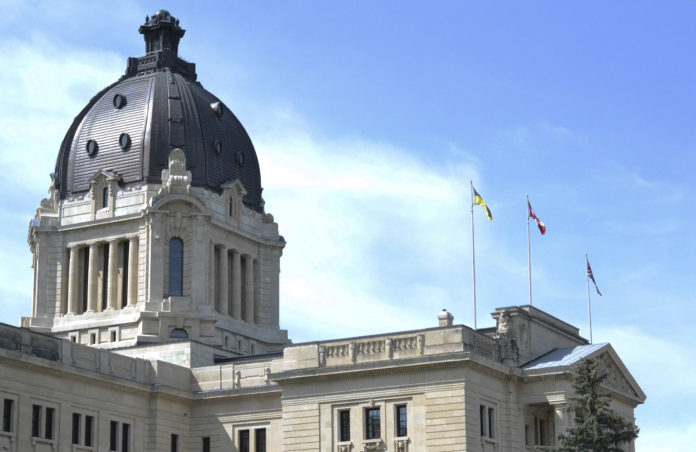The Saskatchewan government is working to crack down on its lobbyist and conflict of interest rules, but critics say loopholes still exist.
On Monday the provincial government announced it had introduced amendments to the Lobbyists Act and the Members’ Conflict of Interest Act “to promote transparency and enhance accountability among provincially-elected officials,” a press release read.
The Lobbyists Act applies to individuals paid to lobby politicians by a client ( a consultant lobbyist) and organizations with employees whose duties include lobbying on their behalf (an in-house lobbyist). The Members’ Conflict of Interest Act applies to members of the Legislative Assembly and Executive Council.
The proposed amendments would create a new provision banning lobbyists from providing gifts, favours or other benefits to public officeholders. It would also require non-profit organizations without a charitable mandate to register any in-house lobbyists. An exception will exist for non-profit charitable organizations with less than five employees who spend a total of fewer than 30 hours of lobbying.
The threshold to register as an in-house lobbyist will also be set at 30 hours. It was previously set at 100 hours.
The changes to the Conflict of Interest Act include requiring that a description of the assets of a private company in which MLAs have a controlling interest be included in the disclosure statement and public disclosure statement. It would also require former members to file a disclosure statement within 60 days of the end of their term.
It will also now allow former members to request opinions or recommendations from the commissioner on their obligations under the act for 12 months after they cease to be a member. The final change is an addition of a definition of gift or personal benefit.
The changes are based on recommendations made by Conflict of Interest Commissioner and Registrar or Lobbyists Ron Barclay.
“It is important for people to have confidence in government,” Justice Minister and Attorney General Don Morgan said in a press release. “This legislation will ensure the public knows who is lobbying and who plans to lobby elected officials in Saskatchewan and provide sensible guidelines for elected officials to follow regarding conflicts of interest.”
The opposition didn’t think the changes went far enough.
“A smaller loophole isn’t good enough,” said Ethics and Democracy Critic David Forbes. “Under the new threshold, a lobbyist could meet a Minister for coffee every single week for more than six months without anybody knowing. These amendments let Saskatchewan people down by failing to fix the holes in our outdated rulebook.”
Forbes argued the lobbying threshold should be eliminated so that all lobbying activity is on the public record. Barclay agreed. Back in May, he said eliminating the threshold entirely is preferable.
In Saskatchewan, paid third-party lobbyists must register and disclose immediately. Different Canadian jurisdictions have adopted different approaches to the question of in-house lobbyist disclosure.
British Columbia eliminated its 100-hour threshold late last year, with an exception for organizations with fewer than six employees that spend less than 50 hours lobbying each year and do not exist primarily to lobby elected officials and civil servants.
Alberta and Ontario both give in-house lobbyists 50 hours of disclosure-free lobbying, while Manitoba’s threshold is 100 hours.
The federal government, Quebec, Nova Scotia and Newfoundland and Labrador use a different system that requires disclosure from corporate insiders who spend more than 20 per cent of their time over a specific period lobbying for change.
— with files from the Saskatoon StarPhoenix


